|
The fourth shrine of Tutankhamun is heading to the Grand Egyotian Museum, Shakespeare’s Globe reopens for business, Paul Chutter on his new role at WhiteWater and Boris Johnson sparking controversy over the Elgin Marbles. Welcome to the latest edition of The Week from Planet Attractions

Tom Anstey | Planet Attractions | 28 Mar 2021


We’ve made it to the squad number of my favourite footballer Alan Shearer, though the legendary Newcastle United striker doesn’t feature in this, the ninth edition of The Week.
No, this week all eyes are on the museum and culture sectors, with a little splash (no pun intended) of waterparks news thrown in. So with museums a major topic this week, it seems like there’s no better time to address decolonisation and the tough choices that museums all over the world are having to make following some beyond-questionable choices by our ancestors.
Welcome to your seven day breakdown of everything related to the visitor attractions industry. Welcome to The Week from Planet Attractions.
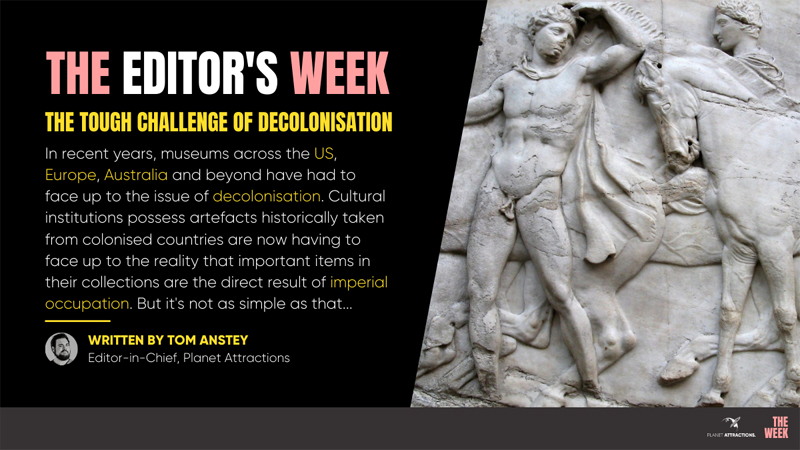
Decolonisation has become a huge topic among cultural institutions in the US, Europe and Australia in recent years.
The general term means the process by which a nation undoes its domination of foreign territories. From a culture perspective, this means restorative justice, including the protection of archaeological and historical sites, and repatriation of ceremonial objects and human remains. For museums, this can pose quite a significant challenge.
The issue is highlighted and explained surprisingly well in Marvel’s 2018 smash hit Black Panther in a memorable scene where the villain Killmonger retrieves an African artefact from the ‘Museum of Great Britain’.
Speaking to the curator about an axe in the collection, he corrects her about its origin, saying: “It was taken by British soldiers in Benin, but it’s from Wakanda. Don’t trip – I’m gonna take it off your hands for you.” The curator informs him that the item is not for sale, to which Killmonger replies: “How do you think your ancestors got these? Do you think they paid a fair price? Or did they take it, like they took everything else?”
It’s a fair point made by Killmonger. Obviously in this instance, the artefact is fictitious, as is the museum, but the scenario is one that could likely be applied to every major historical institution in the world for at least one item (almost certainly more) in their collections. And this isn’t the fault of the people in charge today, but it’s certainly something they should be taking into account.
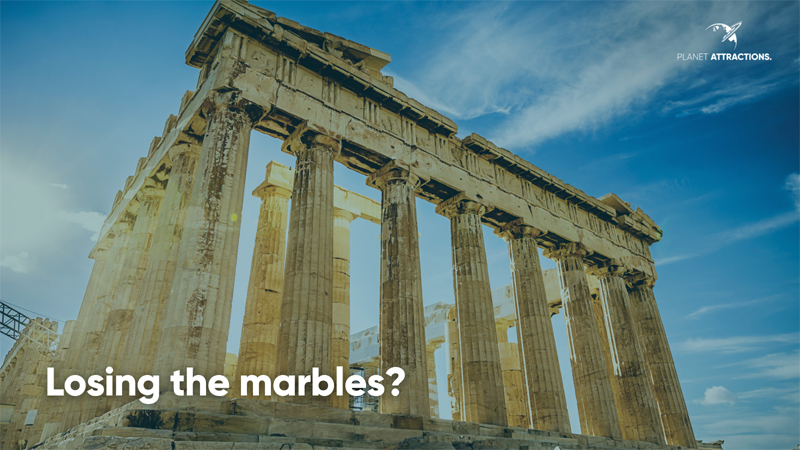
Take for example the world-famous Elgin Marbles currently on display at the British Museum.
Earlier this month British Prime Minister Boris Johnson said that the stones had been legally acquired at the time (check our news section further down for more on this) but the issue is that the marbles came from Greece at a time when the Ottoman Empire was ruling over the country, leading many to question the legality of Elgin's actions, including the legitimacy of the documentation purportedly authorising them.
This is a view which has been shared by Greece for nearly two centuries. After gaining its independence in 1832, the newly-founded Greek state began a series of projects to restore its monuments and retrieve looted art. Ever since then, its government has expressed its disapproval of Elgin's removal of the Marbles from the Acropolis and the Parthenon, which is regarded as one of the world's greatest cultural monuments.
Those arguing for the Marbles' return claim legal, moral and artistic grounds for their return but the British Museum and the British Government have remained steadfast in their claim over their ownership of the historic artefacts and this is a case when researched, where it really isn’t a good look for the museum, or for Britain.
Museums are taking on the issue of colonialism to try and reflect the diversity and the voices of the people at the heart of their collections but many - particularly institutions which are historic in their own right - find themselves rooted in colonialism with collections ‘donated’ by wealth people who benefitted from the old Empires.
The foundation of the British Museum, for example, came from Sir Hans Sloane, whose collection was funded off the back of his wife’s slave plantations in Jamaica and came from collectors all over the world who questionably “acquired” items for him. It’s an issue which needs to be more than a footnote in the museum’s history. It needs to actively be a part of its story today. For somewhere like the British Museum, returning treasured items might not always be the solution. But when it isn’t then representation is the key.
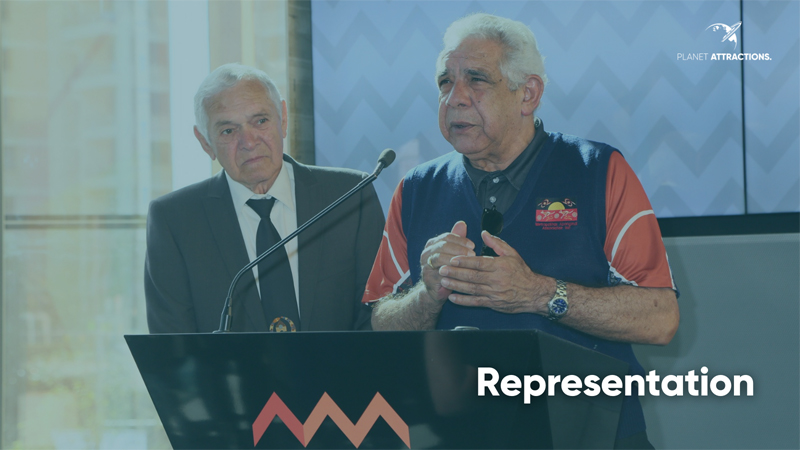
Much like the British Museum, the Australian Museum in Sydney is rooted in colonialism, something the museum has taken on-board and addressed, laying out a 10-year strategic plan to redevelop the conception of its entire collection.
The museum has completely changed its relationship with its exhibitions, changing from an owner to “custodians of those collections, with an obligation to the peoples who created the objects and stories, and to their descendants.”
The museum’s decade-long Indigenous Roadmap Project brings in cultural figures to review its collections. One example of this is Chief Jerry Taki, a Ni-Vanuatu leader who reviewed the museum’s Vanuatu collections, benefiting not only the museum for advancing its understanding of its own collections, but also the indigenous people for which it is the custodian of historic artefacts.
Another great example for the correct approach to representation comes from the Field Museum of Natural History, which holds a large collection of Native American artworks.
To make sure this work is being displayed properly, the museum invited several Native American artists to present their work. In addition, the museum’s Native American Galleries are currently undergoing a renovation with “an advisory committee of scholars and museum professionals from across the country and from diverse tribes and nations”.
The hall is scheduled to reopen this year, with representation at the heart of everything it presents. According to the museum’s curator of North American Anthropology, Alaka Wali: “It’s not just a new exhibition—it represents a whole new way of thinking”.
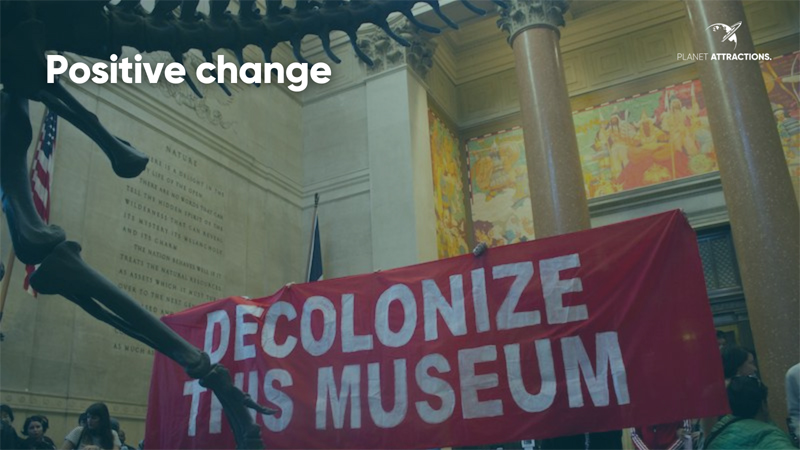
For decolonisation, it’s not just about repatriation, it’s about accepting your historic role in colonialism and informing the public about the part your institution played in those events. It’s about making sure that indigenous and other marginalised people have their say in your presentations. Truly, it’s about overhauling the entire system - something that starts with the decision makers.
As a museum decisionmaker you need to be asking yourself, who have you got deciding what exhibitions should be highlighted? Why are you highlighting them? How are you highlighting them? Most importantly, while it’s probably a good thing that you’re highlighting them, do you have the moral and legal right to highlight them with the items in your collection?
Colonialism has had a huge impact on the world which can still be seen today and it’s something we should still be learning from. Are the Elgin Marbles worth it? Or if you think about it really hard, should they be proudly on display back in their rightful, historical home?
There’s a reason there’s a large group of people protesting your right to do something as simple as displaying an object. If a museum built on the back of Empires wants its place in the modern world, maybe it should stop looking at these protestors or aggravators as a problem but rather the solution. What will it take for these people with banners and signs, condemning you for your historical role in colonialism to come in and explore your museum with a passion they most certainly have? Speak to them. Listen to them. Adapt to them. Not everything they demand will be possible, but when it’s feasible, your reputation and standing with your community will improve and you might find yourself with a few new vocal supporters.
Most importantly you will be doing right by the very cultures that drive millions of people to institutions all over the world, giving them their spotlight in a manner that makes everyone happy.
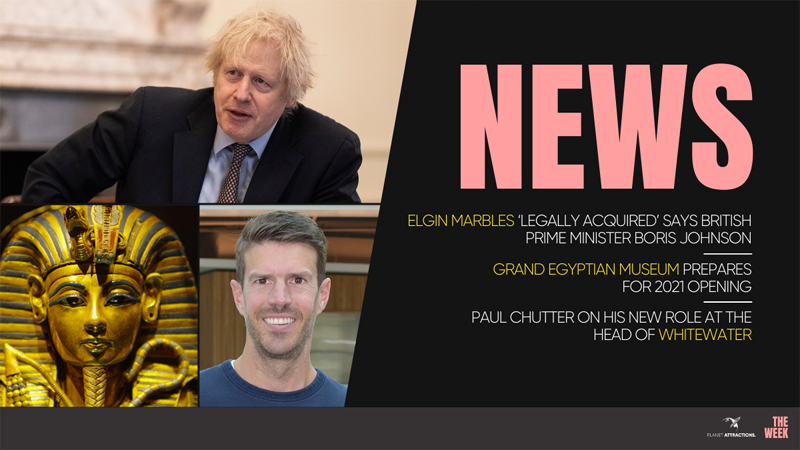
Comments from Boris Johnson aimed at drawing a line under the Elgin Marbles dispute are bound to ignite further controversy with the Greek people, after the British Prime Minister said the artefacts were “legally acquired”.
The highly-controversial Elgin Marbles currently held at the British Museum will not be returned to Greece, according to British Prime Minister, Boris Johnson. Making the comments in Greek newspaper Ta Nea, Johnson insisted that the sculptures, which are at the centre of one of the world’s most widely debated cultural rows, would...keep reading
The fourth shrine of King Tutankhamun has been transferred to the upcoming Grand Egyptian Museum (GEM) in Giza, Egypt, where it will undergo significant restoration work before going on display as part of a new permanent exhibition.
To ensure its safety during transit the shrine was dismantled into five parts using the techniques of the Ancient Egyptians before being wrapped in acid-free materials before...keep reading
After being named president for one of the world’s leading waterpark manufacturers, Planet Attractions had a chat with Paul Chutter about his new role, working with his father and what it means for WhiteWater going forward.
There have been some big changes for WhiteWater in recent times, the most significant seeing Paul Chutter - the son of company founder Geoff Chutter - taking a step up and succeeding his father as company president. In his new role, Paul will continue to work with...keep reading
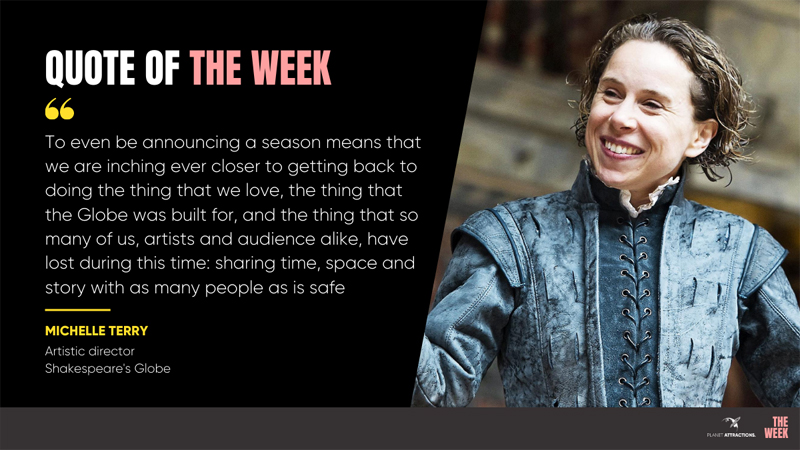
This week’s Quote of The Week comes from Michelle Terry, artistic director at Shakespeare’s Globe, which has announced plans to restart performances from May 19.
The theatre in London, UK, will reopen in line with social distancing measures, with performances taking place in front of limited capacity audiences.
Read more here
More reading
• Chanel teams up with National Portrait Gallery to highlight women’s ‘urgent and untold stories’
• Jean Nouvel and SANAA announced as winning designs for Shenzhen’s new opera house and maritime museum
• AZA to host virtual concert in support of US zoos and aquariums

Greenloop
Industry news source, networking and conference provider Blooloop is hosting a sustainability conference, which will see speakers discuss, debate and introduce sustainable initiatives for the visitor attractions sector.
Read more here
Digital Futures: Embracing New Strategies
From the Museums Association, the Covid pandemic has changed our understanding of digital engagement and forced museums to think more creatively about how to reach and connect with different audiences. This has resulted in powerful work, from e-learning initiatives and digital exhibitions to viral social media strategies. But impact evaluation, digital literacy and digital exclusion remain pressing concerns.
All this and more will be discussed in Digital Futures: Embracing New Strategies, with a wide range of expert speakers set to reveal how they have experimented with digital engagement during the pandemic.
Click here to book
AAM Annual Meeting and MuseumExpo 2021
The AAM Annual Meeting first started in 1906 in New York with under 200 museum professionals and has grown to over 5,000 attendees, becoming the largest museum conference in the US.
The 2021 edition is taking place virtually May 24 and June 7-9, with the event exploring the theme “Resilient, Together.”
Register here

Our Photo of The Week is an attraction that has divided opinion in China, with some calling it cute and romantic, while others see it as one of the country’s ugliest structures. But what do you think? Click the link below to read more about the attraction and to watch an incredible video perfectly scored for such a marvel.
Read more here
Show your support
We’re in extraordinary times right now and this website is a direct result of that. Featuring a team of world-class attractions journalists and behind-the-scenes team of equal calibre, we need your support to make Planet Attractions happen.
We believe that everyone deserves equal access to accurate and compelling content, so we won’t hide anything behind a paywall.
We’re here to support both the industry and the consumer and to achieve our goals, we would love it if you could support us right back.
So how can you do this? It’s easy. Just contact our sales team [email protected] and let us know about your company. We will create a package tailored to your specific needs and deliver that in the way we believe will benefit you the most.
You can also support us at no cost to you. All you need to do is follow our social channels.
You can do this by:
Liking us on Facebook
Following us on Twitter
Liking our Instagram page
Subscribing to our YouTube channel
Following our LinkedIn page
Most importantly, once you’ve subscribed, make sure to go on these social channels and engage! We’re building a community and we love being able to bring you all together.
Thank you,
The team at Planet Attractions.
Visitor attractions
|
|

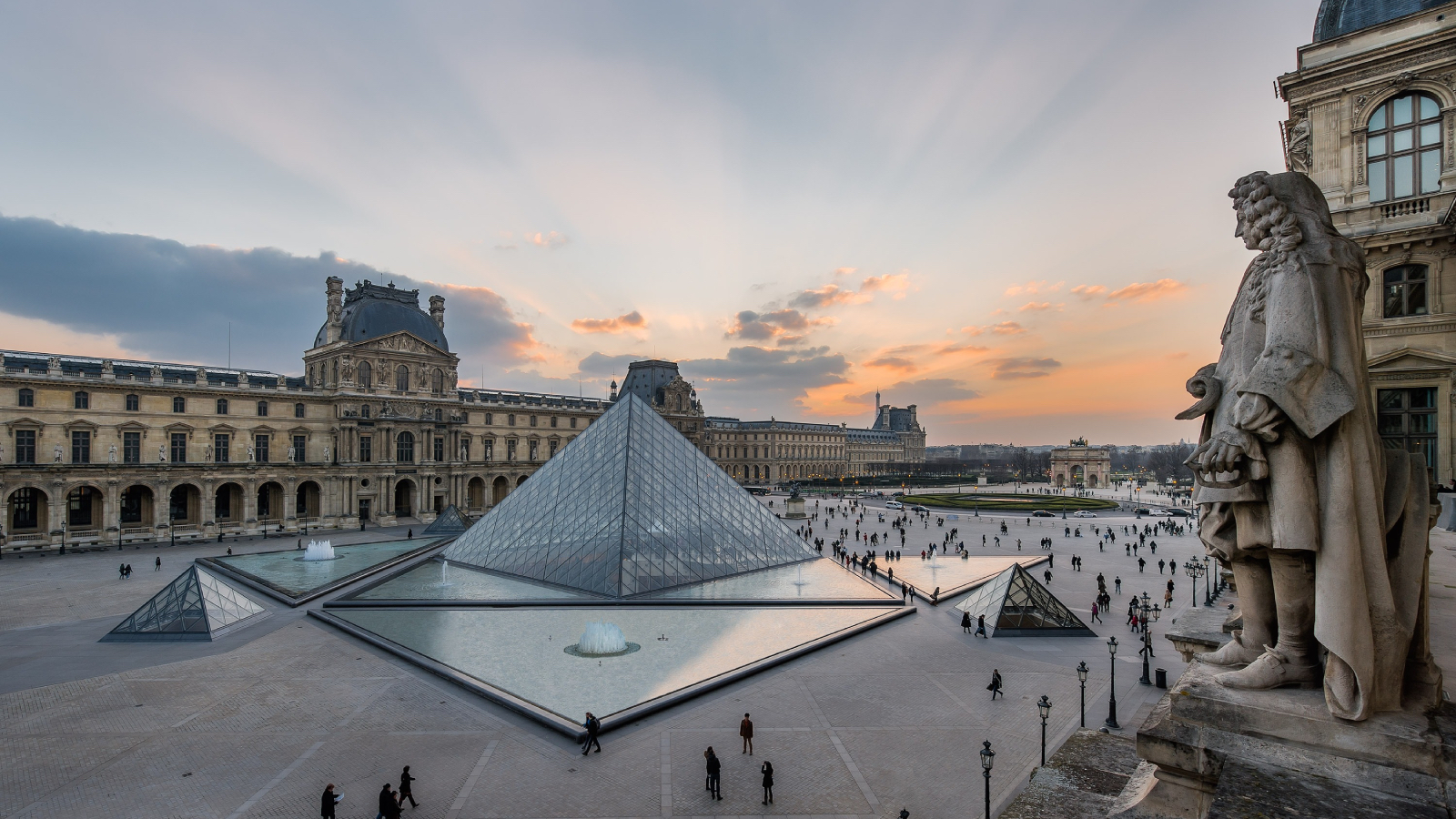
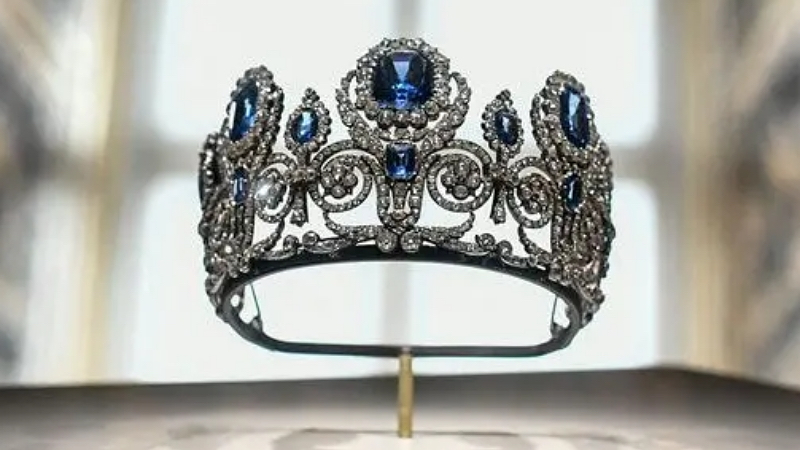



Supplier Showcase 2025: The biggest attractions projects landing worldwide this year
|